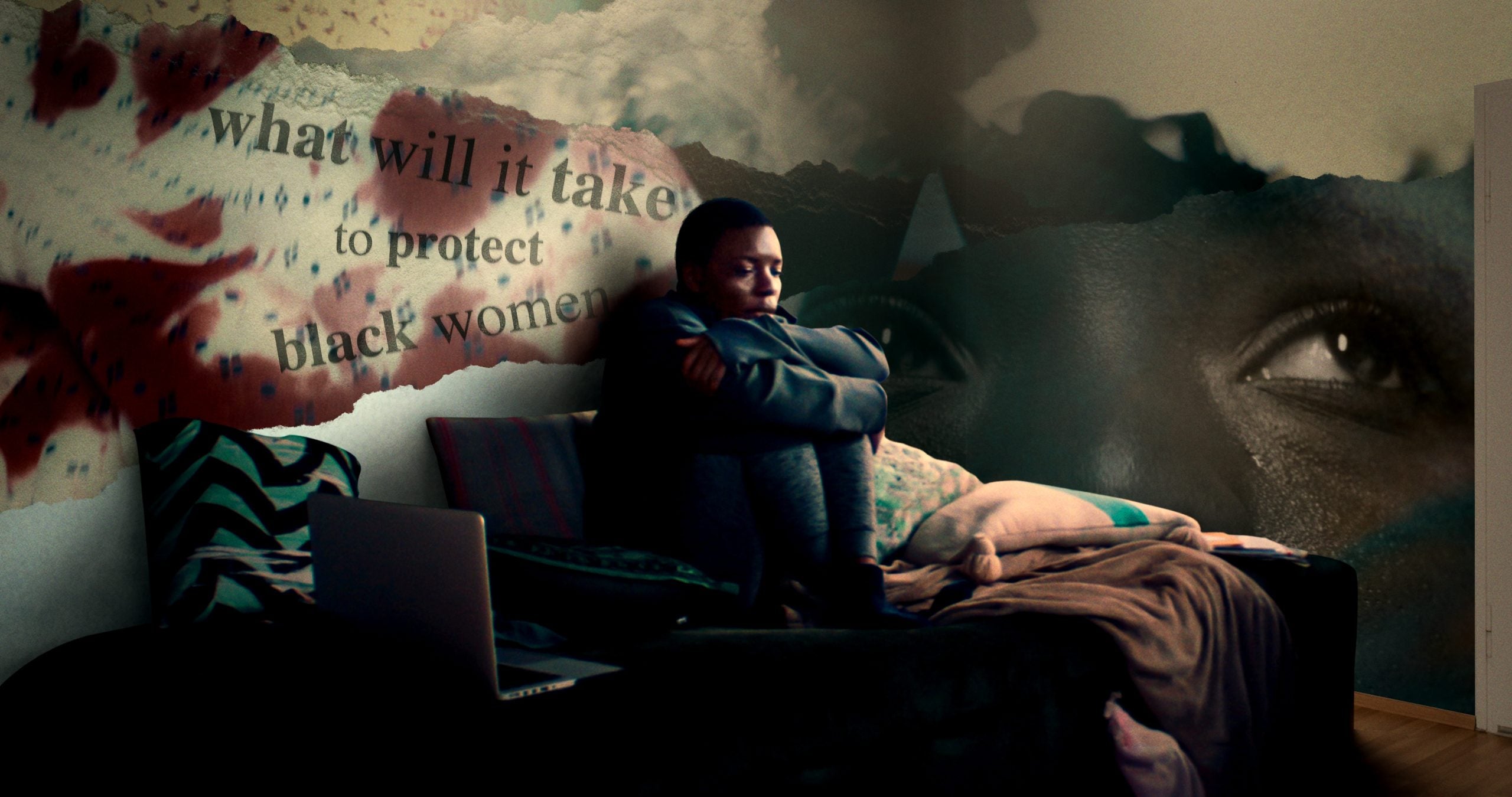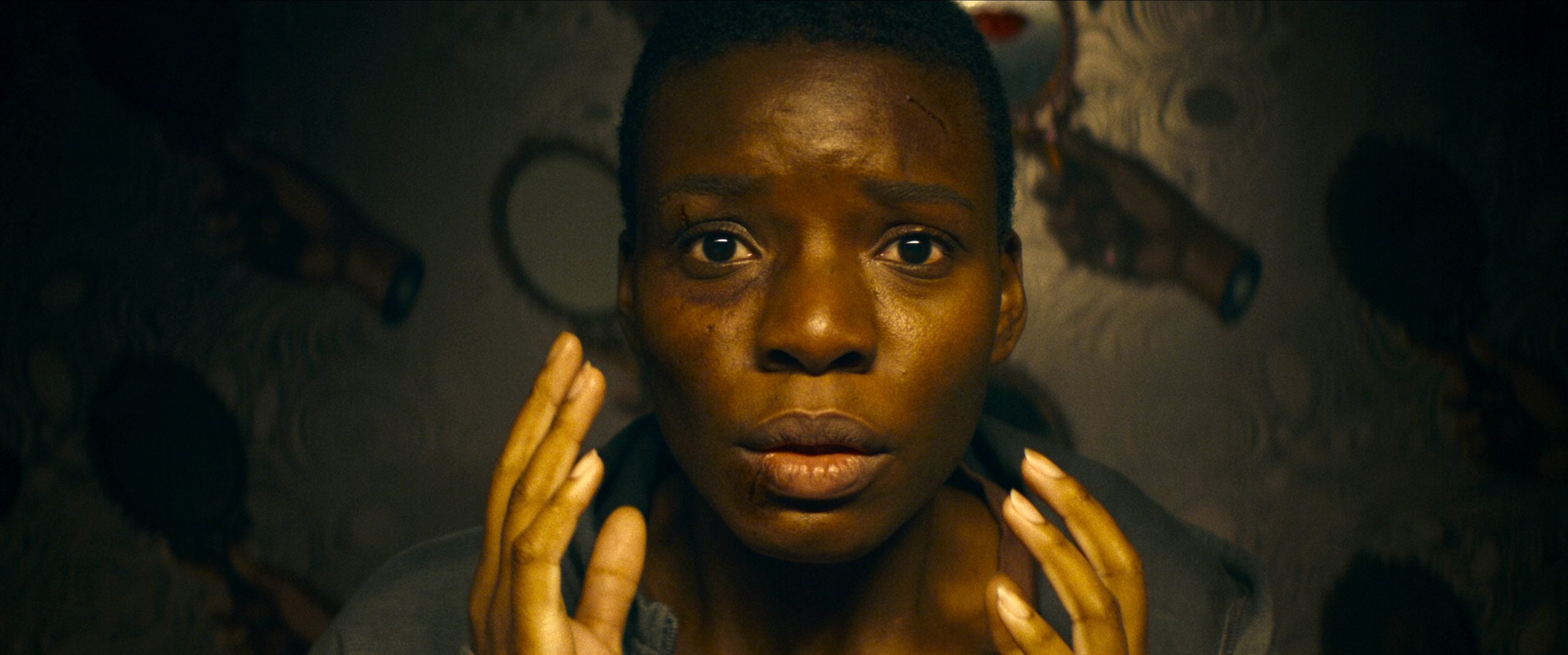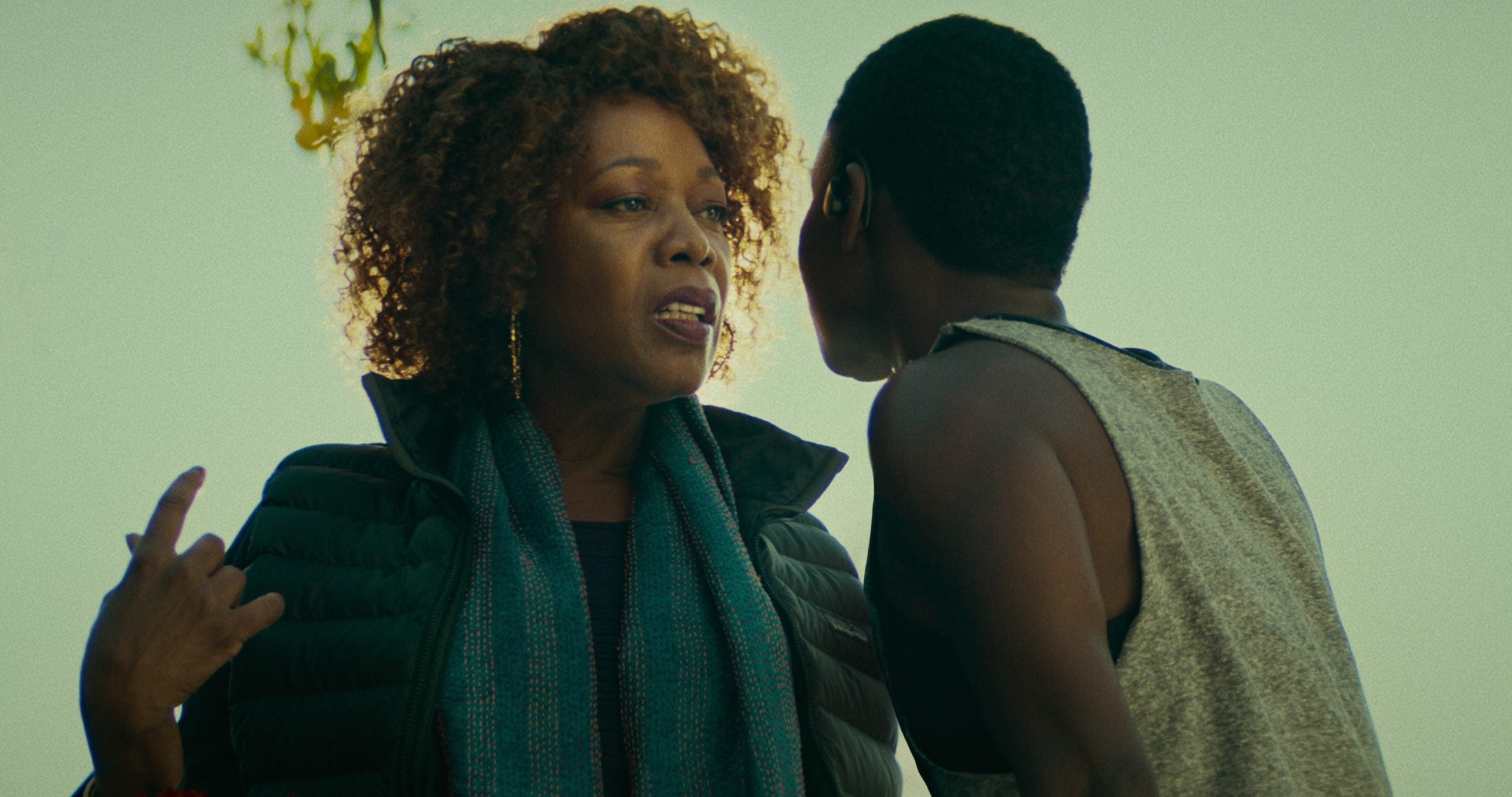
April 11-17 is Black Maternal Health Week. These stories regarding the health of women during pregnancy, childbirth, and the postpartum period are to commemorate the work being done to improve the birthing experiences of Black mothers in this country.
The issue of Black Maternal Health has been steadily growing in the national consciousness in recent years, with high-profile tragedies and medical biases coming to light in the American Black woman’s often harrowing experience on the labor table.
A new Netflix short film starring Alex Louder (Violent Night, Copshop), Alfre Woodard, and Jermaine Fowler, is taking this issue head-on, revealing it for the chilling experience it can truly be. Written and directed by Megalyn Echikunwoke, Weathering follows the plight of a Black journalist named Gimena, who finds herself alone at home grieving the sudden death of her infant during labor after being gaslit and ignored during delivery, now suddenly under a brutal supernatural attack by a terrifying presence in her home.
ESSENCE spoke with lead actress Alex Louder exclusively about her experience shooting the film, and the real-life health disparities that face Black women from all walks of life, simply looking to safely deliver their children just like anyone else.

There is a very heavy, yet urgently relevant topic at the center of this thriller. What drew you to this script when you read it?
When I read the story, I was immediately interested because I kind of pride myself in being a part of projects that have something to say. The fact that this project is speaking about something that has been trickling to the top of people’s minds, but it’s not at the forefront just yet – I really wanted to be a part of that conversation.
I mean, I’ve been having conversations with my mom about it for a while. My mom is like, “Whenever you have my grandbabies, you’re going to Germany!” Because she’s really concerned about the depravity between the maternal health of Black women versus other ethnic groups. So I was immediately on board when Megalyn [Echikunwoke] contacted me and my team.
Did you have a personal connection point to this issue?
Well, I’m a rainbow baby. My mother had a miscarriage before she had me, and before that, she had a C- section with my older sister. And with the two of those combined, every medical book says that you have to get a C-section for your next pregnancy, there are no other options. And my mother, she attributes having good insurance “If you don’t strap me down to a table, if you let me walk, I can have her naturally.” And they listened to her. And I’m scientific proof that listening to Black women about their bodies is the successful choice. We know our bodies and your job is to interpret what we’re feeling and find a solution and help us through that. It’s not to negate or gaslight what we are feeling in our own bodies.

In this film, your character Gemina isn’t listened to at all, it seems. First, she is ignored and gaslit during her labor and delivery process. Later, when she is back home and experiencing unsettling phenomena, she’s once again dismissed by someone close to her and told that she isn’t actually experiencing the things she says she is. What do you feel like this film is telling us about Black women and our struggle to be truly heard?
If people keep telling you that what you’re thinking is wrong, it can compromise the confidence you have in your own inner voice. Then you’re second-guessing yourself, you’re unsure and uncertain. I know how I feel when I’m unsure and uncertain, and it’s not a good place to be.
We really need to rebuild ourselves after tragedies like that. I think that if we’re more focused on knowing ourselves and knowing what we can handle, knowing what we can go through and making it out on the other side successfully and being better for it. Versus, going into circumstances with this idea that society has for us, “You should be able to handle this. You should be able to do this and that and everything.” Then we come out the other side, battered and bruised, and society is nowhere to be found when we’re like, “Wait, you said I could do this, and it turns out I couldn’t.” And then just being shunned and looked down upon versus having any type of support.

Without giving away spoilers, there is a pretty shocking reveal at the film’s end when we realize exactly what entity has been tormenting our main character. What do you feel that the takeaway from this is given the struggle that our character has been through going unheard and ignored?
I’ll say be kind to yourself and give yourself grace. Oftentimes, we’re our own worst critics. Oftentimes, we’re our greatest punishers. And so giving ourselves grace and love and care on a daily basis is definitely necessary no matter what’s going on in your life.
Weathering premieres on Netflix on April 14th.